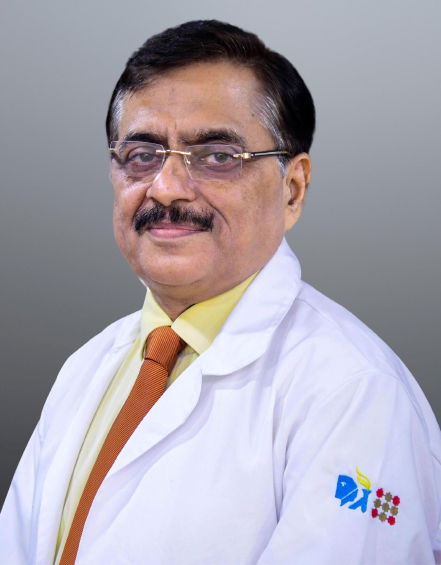Search Result: 2

Dr Chirayata Basu
MBBS, MS, DNB (ENT) MNAMS, MRCS (London, UK)
Registration No
6288185
Language
English, हिंदी

3 years experience overall

Kanpur Road , Lucknow
MON- SAT, MON- SAT(09:00 AM-05:00 PM)

Dr Rajiv Khanna
• M.S. (ENT), GSVM College, Kanpur
Registration No
1837020
Language
English, हिंदी

36 years experience overall

Kanpur Road , Lucknow
MON- FRI, MON- FRI(09:00 AM-03:00 PM)
Frequently Asked Questions for Septoplasty in Lucknow
The season can potentially affect recovery from septoplasty due to environmental factors. For example, in colder months, dry air can cause nasal dryness and discomfort. On the other hand, in warmer months, increased humidity can promote nasal congestion. It is important to follow post-operative instructions and use appropriate measures, such as saline rinses to maintain nasal health regardless of the season.
Septoplasty primarily focuses on correcting structural issues inside the nose and does not directly change the shape of the face. However, since the nose is a prominent feature, correcting a deviated septum can sometimes improve the overall appearance of the face by creating better symmetry and balance.
There is no specific minimum age requirement for septoplasty. However, it is generally recommended that patients wait until their nasal growth is complete, which typically occurs around late adolescence or early adulthood. A thorough evaluation by an ENT specialist will determine if you are suitable for the procedure.
Septoplasty is considered a relatively minor surgery compared to more invasive procedures. It is generally performed as an outpatient procedure under local or general anaesthesia. Although it may not be as extensive as some major surgeries, it still requires the expertise of a qualified ENT specialist.
Yes, septoplasty is considered a permanent solution for correcting a deviated septum. The procedure involves straightening the nasal septum, which is the bone and cartilage dividing the nostrils. However, keep in mind that other factors like ageing or injury can potentially cause the septum to deviate again in the future.
Like any surgical procedure, septoplasty entails some risks, which include bleeding, infection, scarring, changes in sensation, and a small chance of needing revision surgery. However, these risks are generally rare and can be minimised by choosing an experienced surgeon and following post-operative instructions carefully.
Eligibility for septoplasty is determined by a thorough evaluation by an ENT specialist. They will assess your symptoms, perform a physical examination, and review any relevant imaging studies to determine if septoplasty is appropriate for you.
Septoplasty procedure typically lasts around 1-2 hours. However, the duration may vary depending on the complexity of the deviation, any additional procedures being performed, and individual patient factors.
Apollo Hospitals is known for its expertise in various medical specialities, including ENT surgery. They have a team of experienced ENT specialists who are well-equipped to perform septoplasty procedures efficiently and provide quality care throughout the process.
Post-procedure care involves keeping the nasal passages moist with saline sprays or rinses, using pain relievers as prescribed, avoiding strenuous activities, and following any dietary restrictions or activity limitations outlined by your surgeon. Further, regular follow-up visits will be scheduled to monitor your progress.
Preparation for septoplasty may include avoiding certain medications like aspirin and nonsteroidal anti-inflammatory drugs (NSAIDs) that can increase bleeding risk. Your doctor will provide specific instructions regarding fasting before surgery and any necessary pre-operative tests or evaluations.
The recovery time can vary from person to person, but it typically takes about 1-2 weeks. During this time, you may experience swelling, bruising, nasal congestion, and mild discomfort. You must follow post-operative instructions given by your surgeon to ensure a smooth recovery.
Septoplasty has a high success rate, with most patients experiencing significant improvement in their symptoms after undergoing the procedure. However, individual results may vary depending on factors such as the severity of the deviation and any underlying nasal conditions.
You can start by asking for recommendations from your primary care physician or friends/family who have undergone similar procedures. It is also helpful to research online, read patient reviews, and consider factors such as experience, credentials, and patient satisfaction ratings to find the best doctor for septoplasty.
An ENT specialist or otolaryngologist performs septoplasty. They are trained to diagnose and treat conditions involving the ears, nose, and throat. Moreover, they have the necessary expertise to perform septoplasty and provide comprehensive care for nasal issues.
Septoplasty is a surgical procedure performed to correct a deviated septum, which is when the wall between the nostrils is crooked or off-centre. This procedure can improve breathing and alleviate symptoms such as nasal congestion, snoring, and sinus infections.
A doctor who performs septoplasty should be an experienced Ear, Nose, and Throat (ENT) specialist or otolaryngologist. The procedure can also be performed by an experienced plastic surgeon or cosmetic surgeon.
Related Procedures in Lucknow
- Doctors for Laryngoscopy in Lucknow
- Doctors for Septoplasty in Lucknow
- Doctors for Tonsillectomy in Lucknow
- Doctors for Tympanoplasty in Lucknow
- Doctors for Tympanomastoidectomy in Lucknow
- Doctors for Tracheostomy in Lucknow
- Doctors for Cochlear Implant in Lucknow
- Doctors for Adenoidectomy in Lucknow
- Doctors for Myringoplasty in Lucknow
- Doctors for Laryngectomy in Lucknow
- Doctors for Stapedectomy in Lucknow
- Doctors for Parotidectomy in Lucknow
- Doctors for Functional Endoscopic Sinus Surgery in Lucknow
- Doctors for Ear tubes in Lucknow
Other Specialities in Lucknow
- Best Urologist in Lucknow
- Best Pulmonologist in Lucknow
- Best General Physician in Lucknow
- Best Endocrinologist in Lucknow
- Best Cardiologist in Lucknow
- Best Oncologist in Lucknow
- Best Radiologist in Lucknow
- Best Orthopedics in Lucknow
- Best Hepatologist in Lucknow
- Best Gynecologist in Lucknow
- Best Dermatologist in Lucknow
- Best Gastroenterologist in Lucknow
- Best Psychologist in Lucknow
- Best Ent Specialist in Lucknow
- Best Nephrologist in Lucknow
- Best Rheumatologist in Lucknow
- Best Diabetologist in Lucknow
- Best Psychiatrist in Lucknow
- Best Neonatologist in Lucknow
- Best Dentist in Lucknow
- Best Dietitian in Lucknow
- Best Haematologist in Lucknow
- Best Pediatrics in Lucknow
- Best General Surgeon in Lucknow
Top Hospitals in India
- Hospitals in Ahmedabad
- Hospitals in Bangalore
- Hospitals in Bhubaneswar
- Hospitals in Bilaspur
- Hospitals in Chennai
- Hospitals in Delhi
- Hospitals in Guwahati
- Hospitals in Hyderabad
- Hospitals in Indore
- Hospitals in Kolkata
- Hospitals in Madurai
- Hospitals in Mumbai
- Hospitals in Mysore
- Hospitals in Nashik
- Hospitals in Noida
- Hospitals in Visakhapatnam
- Hospitals in Lucknow
- Hospitals in Bhopal
- Hospitals in Karur
- Hospitals in Kochi
- Hospitals in Nellore
- Hospitals in Trichy
- Hospitals in Kakinada
© Copyright 2024. Apollo Hospitals Group. All Rights Reserved.
 08429021972
Book Appointment
08429021972
Book Appointment






 Call Now
Call Now


